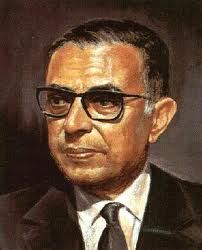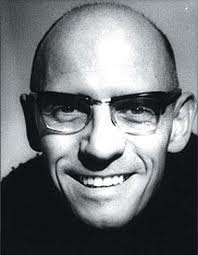French
Jean-Paul Sartre (1905-1980)

The philosophical career of Jean Paul Sartre (1905-1980) focuses, in its first phase, upon the construction of a philosophy of existence known as existentialism. Sartre’s early works are characterized by a development of classic phenomenology, but his reflection diverges from Husserl’s on methodology, the conception of the self, and an interest in ethics. These points of divergence are the cornerstones of Sartre’s existential phenomenology, whose purpose is to understand human existence rather than the world as such. Adopting and adapting the methods of phenomenology, Sartre sets out to develop an ontological account of what it is to be human. The main features of this ontology are the groundlessness and radical freedom which characterize the human condition. These are contrasted with the unproblematic being of the world of things. Sartre’s substantial literary output adds dramatic expression to the always unstable co-existence of facts and freedom in an indifferent world.
Sartre’s ontology is explained in his philosophical masterpiece, Being and Nothingness, where he defines two types of reality which lie beyond our conscious experience: the being of the object of consciousness and that of consciousness itself. The object of consciousness exists as “in-itself,” that is, in an independent and non-relational way. However, consciousness is always consciousness “of something,” so it is defined in relation to something else, and it is not possible to grasp it within a conscious experience: it exists as “for-itself.” An essential feature of consciousness is its negative power, by which we can experience “nothingness.” This power is also at work within the self, where it creates an intrinsic lack of self-identity. So the unity of the self is understood as a task for the for-itself rather than as a given.
In order to ground itself, the self needs projects, which can be viewed as aspects of an individual’s fundamental project and motivated by a desire for “being” lying within the individual’s consciousness. The source of this project is a spontaneous original choice that depends on the individual’s freedom. However, self’s choice may lead to a project of self-deception such as bad faith, where one’s own real nature as for-itself is discarded to adopt that of the in-itself. Our only way to escape self-deception is authenticity, that is, choosing in a way which reveals the existence of the for-itself as both factual and transcendent. For Sartre, my proper exercise of freedom creates values that any other human being placed in my situation could experience, therefore each authentic project expresses a universal dimension in the singularity of a human life.
After a brief summary of Sartre’s life, this article looks at the main themes characterizing Sartre’s early philosophical works. The ontology developed in Sartre’s main existential work, Being and Nothingness, will then be analysed. Finally, an overview is provided of the further development of existentialist themes in his later works. Download
Michel Foucault (1926-1984)

Michel Foucault was a major figure in two successive waves of 20th century French thought–the structuralist wave of the 1960s and then the poststructuralist wave. By the premature end of his life, Foucault had some claim to be the most prominent living intellectual in France.
Foucault’s work is transdisciplinary in nature, ranging across the concerns of the disciplines of history, sociology, psychology, and philosophy. At the first decade of the 21st century, Foucault is the author most frequently cited in the humanities in general. In the field of philosophy this is not so, despite philosophy being the primary discipline in which he was educated, and with which he ultimately identified. This relative neglect is because Foucault’s conception of philosophy, in which the study of truth is inseparable from the study of history, is thoroughly at odds with the prevailing conception of what philosophy is.
Foucault’s work can generally be characterized as philosophically oriented historical research; towards the end of his life, Foucault insisted that all his work was part of a single project of historically investigating the production of truth. What Foucault did across his major works was to attempt to produce an historical account of the formation of ideas, including philosophical ideas. Such an attempt was neither a simple progressive view of the history, seeing it as inexorably leading to our present understanding, nor a thoroughgoing historicism that insists on understanding ideas only by the immanent standards of the time. Rather, Foucault continually sought for a way of understanding the ideas that shape our present not only in terms of the historical function these ideas played, but also by tracing the changes in their function through history. Download